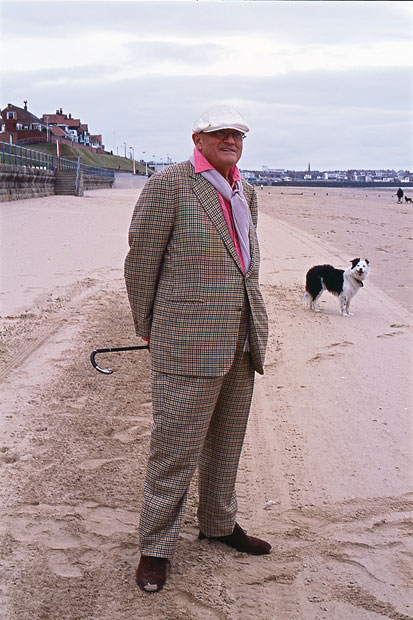The first volume of Christopher Simon Sykes’s biography of David Hockney ended in the summer of 1975. The 38-year-old painter had just returned to Paris, where he was then living, ‘energised’ by the widespread acclaim that greeted his designs for the Glyndebourne production of Stravinsky’s The Rake’s Progress. Energy was something Hockney would need in the years ahead when the time he always wanted to devote to painting was frequently interrupted by side-projects such as stage design or an investigation into earlier painters’ use of the camera lucida, sudden passions for new technology, and the increasing demands of celebrity. A constant theme of this second volume is Hockney’s desire to get back to the easel, and it closes with A Bigger Picture, the enormously popular exhibition of his paintings of the Yorkshire landscape at the Royal Academy in 2012.
Sykes has written that the aim of his biography has been ‘to conjure up the man that [Hockney] is, and in doing so to put his paintings and drawings in the context of his extraordinary life’. In this he has largely succeeded, having been a friend of the artist since 2005 and admirer of the work since the mid-1960s.
This friendship has not stood in the way of some frank accounts of Hockney’s less admirable behaviour, much of it a result of the kind of egotism that characterises the dedicated artist. Sykes also describes many instances of Hockney’s generosity, and his loyalty to his friends, often in the face of severe provocation.
If the emotional core of the first volume was Hockney’s relationship with Peter Schlesinger (recreated in Jack Hazan’s notorious film A Bigger Splash), this account of the second half of the artist’s life is coloured by the loss of friends and family to illness and age. As with Schlesinger, the subject of several major paintings, these losses direct the development of Hockney’s work. His usual reaction to the death of someone close, we learn, is to spend time painting portraits of other friends; while it was the terminal illness of Jonathan Silver, the founder of Salts Mill near Bradford, that brought Hockney back to Yorkshire and decided him to remain there, instigating a whole new phase of his career.
Sykes draws not only upon his own thorough knowledge but also upon extensive interviews with people in Hockney’s circle, and copious extracts from letters and diaries. The result is a biography in which many voices are heard, not always sufficiently mediated. The use of Hockney’s mother’s letters and diaries, for example, is sometimes both touching and apposite, as when she writes to him during the Aids crisis or wonders why, given California’s ‘wonderful drying weather’, Los Angelinos fail to hang their washing out; but at other times their reproduction seems no more than padding which adds nothing to the narrative.
Worse still, Sykes’s relaxed prose style too often becomes merely slack: within two pages Hockney is ‘blown away’ by New York and ‘blown away’ by Los Angeles; in Paris ‘the spectre of Aids had raised its ugly head again’, having already been ‘a dark cloud [that] loomed on the horizon’ in America; a gallery is ‘over the moon’ when they hear that NBC is planning a documentary to coincide with their exhibition; Hockney’s late paintings of hawthorn ‘looked as if they had been painted on acid’ (as opposed to canvas?).
But what Sykes generally does very well is write about the many different technical processes Hockney employs to produce his work, from paint brushes to Paintbox. Hockney has been criticised for his attachment to the latest technological gadgetry, making pictures using Polaroid photographs, photocopiers and fax machines, computer programmes, video cameras, iPhones and iPads. Although he has sometimes been carried away by his enthusiasm for such devices, his motivation has always been to explore and extend the range of what an artist can do even when the results are uneven. If the photo-collages he created in the early 1980s represented ‘something of a leap’, as Hockney claimed, they were perhaps more interesting as an exercise than they were successful as works of art.
Similarly, many visitors to A Bigger Picture preferred the oil paintings to those works created on an iPad. What people make of the work is not, however, always the point. The important thing about the equally innovative large-scale watercolour portraits he exhibited in 2003, he said, was the speed with which they had to be done: ‘I’m doing them for myself, not for the sitters, and frankly what they think of them I never ask. I’m unconcerned.’
At the end of the book, Hockney is in his mid-seventies, increasingly and entertainingly grumpy, his social interaction restricted by deafness. He seems never, however, to have lost the youthful curiosity and energy that that has made him not only Britain’s most popular living artist but also its most hard-working one. A further volume may well be needed.
Available from the Spectator Bookshop, £20. Tel: 08430 600033






Comments